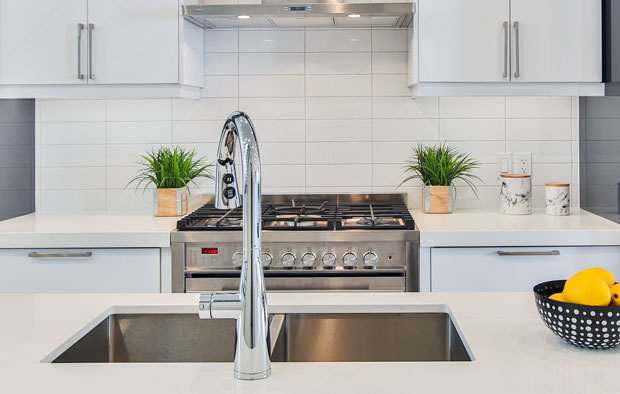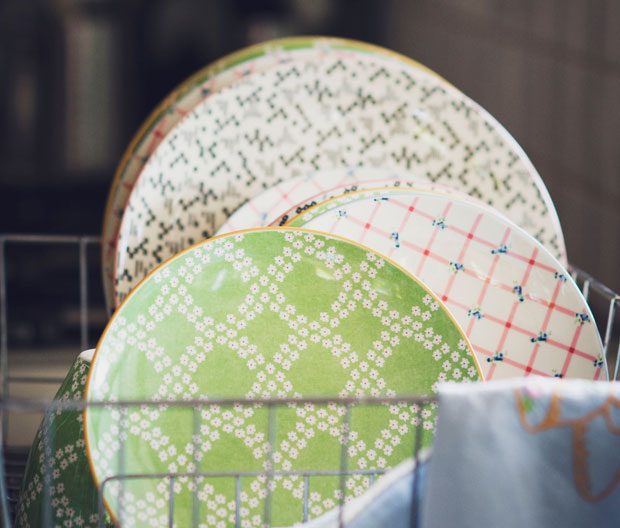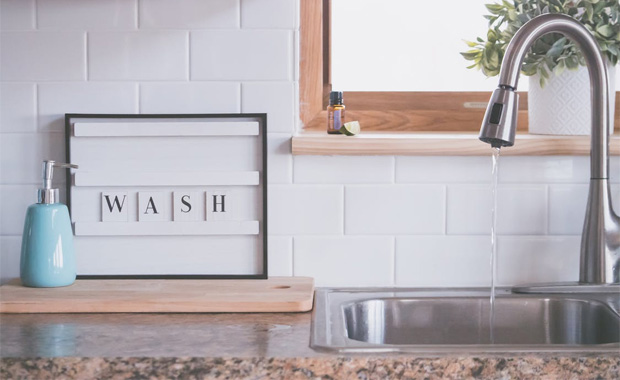Why Does My Drain Keep Blocking?

Why Does My Drain Keep Blocking?
Do you find yourself constantly dealing with blocked drains in your home? Having a drain that keeps getting clogged can be frustrating and inconvenient. But have you ever wondered why this happens?
Several factors contribute to drain blockages, and understanding them can help you prevent future issues. This is especially true for drains in heavily used areas such as bathrooms and kitchens.
If you suspect that the drain issue is occurring deep in the drainage system, it’s best to arrange a drainage survey where specialists use CCTV cameras to identify the source of the issue.
Many issues are smaller though and the good news is that there are lots of things that you can do to prevent drainage issues too. In this article, we’ll explore a few key reasons you might have issues with your drains and help you understand how best to fix them, and prevent them.
Let’s get into it.
#1 Accumulation of Debris and Buildup
Why does your drain keep blocking? One of the main reasons is the accumulation of debris and buildup.
Over time, hair, soap residue, food particles, and other substances can get trapped in your drain pipes. When these materials build up, they can create a blockage that prevents water from flowing freely. As a result, you may notice that water drains slowly or not at all.
To prevent this issue, cleaning your drains and removing any debris or buildup regularly is important. You can start by using a plunger to try and dislodge any clogs near the surface. If that doesn’t work, you may need a drain snake or auger to reach deeper into the pipes and clear the blockage.
Additionally, consider using drain covers or strainers to catch hair and larger particles before they go down.
Addressing the accumulation of debris and buildup is crucial in preventing your drains from continually blocking. You can maintain proper drainage in your home by taking proactive steps like regular cleaning and using protective measures such as drain covers.
Remember to address any blockages promptly to avoid more significant plumbing issues down the line. If things do progress, or your blockage is on a larger, industrial scale, contact a trusted professional to help you deal with the issue. They will have the specialist equipment and knowledge to ensure the waste is probably dealt with.

#2 Impact of Hair and Soap Residue
To prevent frequent blockages, you need to be mindful of the impact hair and soap residue have on your drains. Hair is one of the main culprits when it comes to drain clogs. Some strands inevitably go down the drain when you shower or wash your hair. Over time, these hairs can get tangled together, forming a solid mass that blocks water from flowing freely.
It’s important to regularly clean your drains and remove any hair buildup to avoid this issue. Soap residue is another common cause of drain blockages. Using soap in the shower or while washing dishes leaves behind a sticky film that can accumulate in your pipes. This residue is a magnet for other debris, such as food particles or dirt, leading to clogs over time.
To prevent this from happening, rinse your drains thoroughly after each use and consider using enzyme-based cleaners specifically designed to break down soap scum. By being aware of how hair and soap residue can impact your drains, you can take proactive measures to prevent frequent blockages.
Regularly cleaning out hair build-up and rinsing away soap residue will help keep your drains clear and ensure smooth water flow throughout your home. Remember, prevention is key to maintaining a healthy plumbing system!

#3 Effects of Grease and Food Particles
When you cook and wash dishes, it’s easy for grease and food particles to sneak their way into your drains, causing potential blockages. Grease is a common culprit that can accumulate in your pipes over time.
When you pour hot oil or fat down the drain, it may be in liquid form initially, but as it cools down, it solidifies and sticks to the walls of the pipes. This build-up can restrict the water flow and lead to a clogged drain.
Food particles are another major contributor to drain blockages. Even if you use a garbage disposal unit, small food scraps can still slip through and get trapped in the plumbing system.
Over time, these particles accumulate and create a stubborn blockage that can be difficult to remove. Additionally, starchy foods like pasta or rice tend to expand when they come into contact with water, further exacerbating the problem.
It’s important to be mindful of what goes down your sink to prevent grease and food particle-related drain blocks. Avoid pouring cooking oils or fats directly into the drain; let them cool and dispose of them properly in a sealed container or trash bag. Use sink strainers or screens to catch any food particles before they drain. Regularly clean these filters to ensure proper water flow.
These simple precautions can help minimise the likelihood of experiencing frequent drain blockages caused by grease and food debris.
#4 Contribution of Mineral Deposits from Hard Water
Imagine dealing with stubborn clogs and restricted water flow in your pipes, all because of the mineral deposits that accumulate from your hard water.
If you’ve tried all of the above hacks but still ask: “Why does my drain keep blocking?” it could be because of the type of water in your region.
It can be frustrating to battle with a blocked drain constantly, but understanding how mineral deposits contribute to this issue can help you find effective solutions. Here are four key factors to consider:
- Calcium and Magnesium Buildup: Hard water contains high calcium and magnesium mineral levels. Over time, these minerals form a sticky residue that adheres to the inside of your pipes, creating a buildup restricting water flow.
- Scale Formation: As the mineral deposits accumulate, they form a hard scale on the inner walls of your drains and pipes. This scale reduces the diameter of the pipe, making it easier for debris like hair or food particles to get trapped and cause blockages.
- Reduced Pipe Lifespan: The constant presence of mineral deposits can also lead to corrosion and damage in your pipes over time. This increases the chances of blockages and reduces the lifespan of your plumbing system.
- Hard Water Soap Scum: Hard water makes it difficult for soap or detergent to lather properly, resulting in soap scum residue on dishes, clothes, and even inside your drains. This soap scum contributes to clogs by trapping other particles and slowing down drainage.
Dealing with mineral deposits from hard water requires regular maintenance strategies, such as using descaling agents or installing a water softener system. Addressing this underlying cause can prevent drain blockages and allow you to enjoy smooth-flowing pipes again.

#5 Preventive Measures to Avoid Drain Blockages
Are you tired of dealing with stubborn clogs and restricted water flow in your pipes? Here’s how to prevent future drain blockages and keep your plumbing system running smoothly.
First, be mindful of what goes down your drains. Avoid pouring grease, oil, or food scraps down the sink, as they can solidify and cause blockages. Instead, wipe greasy pans with a paper towel before washing them or dispose of cooking oil in a sealed container.
Additionally, install drain screens or strainers to catch hair, soap residue, and other debris accumulating over time.
Another preventive measure is to flush your drains with hot water regularly. This helps break down any buildup that may be forming inside the pipes. Once a week, boil a kettle of water and carefully pour it down each drain in your home. This simple step can go a long way in preventing blockages caused by the accumulation of soap scum or mineral deposits from hard water.
Lastly, consider using enzymatic cleaners every month to keep your drains clear and flowing freely. These cleaners contain natural enzymes that eat away organic matter, such as hair and food particles, without causing any damage to your pipes. Pour the recommended amount down each drain before bedtime and let it work its magic overnight.
By following these preventive measures, you can significantly reduce the chances of experiencing frequent drain blockages. Taking proactive steps now will save you from the hassle of dealing with clogged drains in the future while keeping your plumbing system in top shape.
So, Why Does My Drain Keep Blocking?
In conclusion, it’s frustrating when your drain keeps blocking, but understanding its reasons can help prevent future blockages.
The accumulation of debris and buildup in your pipes is a common culprit. Hair and soap residue also play a significant role in clogging drains, especially in bathrooms. Grease and food particles from the kitchen can also contribute to blockages.
Regular maintenance is key to keeping your drains clear and preventing future problems. You can save yourself from constant drain blockages by proactively keeping your pipes clean and free-flowing.
Collaboration – Guest Article.





